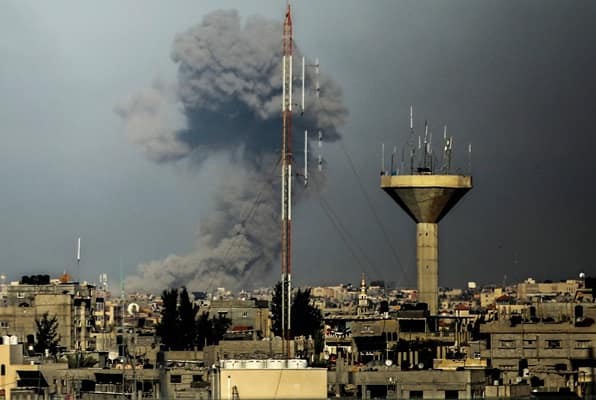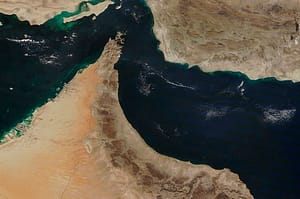Crude oil across both major benchmarks is recording quiet trading today with slight losses of nearly 0.18% and 0.15% for both West Texas Intermediate (WIT) and Brent crude respectively.
Cautious trading in the oil market comes with a state of anticipation regarding the progress of military action developments in the Middle East at the beginning of the month of Ramadan, especially with the dwindling hope of reaching an imminent ceasefire.
After losing the opportunity to reach a ceasefire agreement in Gaza before the start of the holy month, the world has become more afraid of the conflict entering a new, bloodier phase.
Usually, the month of Ramadan may witness an increase in violence, especially near the holy sites in Jerusalem. Even before entering this month, there is a fear of carrying out a large ground operation in Rafah, which may not be far away now with the collapse of the negotiations. Now, in addition to fears about the bloody events that may occur in Rafah, the West Bank may become more involved in this conflict in conjunction with the holy days for Muslims.
The expected escalation in Rafah or the West Bank during Ramadan would create more pressure from regional or international actors to stop the violence. At the same time, it will prompt more retaliatory actions that may hit economic interests, especially in the Red Sea, and this is what the markets may actually fear.
The US Democratic administration may seek to contain this escalation, which coincides with the election season, in which the Republicans seem to have more luck so far. Where US President Joe Biden said that causing heavy casualties among civilians in Rafah is a red line.
Of course, despite the premium oil prices are getting from the conflict in the Middle East, this does not appear to be enough to face the pressure of the continued weak demand from China.
Despite this, the largest oil producing company in the world, Aramco, has increased its annual dividends by 30% to approach $100 billion for the year 2023, according to what the company announced yesterday.
While this step to significantly raise dividends reflects the company’s optimism about the future growth of global demand for oil, and this is what the CEO also spoke about with his expectations of an increase in demand during the current and next year.
This week, we await a set of important economic data. From the United States, this week we will see the February reading of the Consumer Price Index (CPI) with expectations for annual inflation to hold the growth at 3.1% and Producer Price Inflation (PPI) to hold at a growth at 0.3% on a monthly basis.
While weaker than expected inflation readings may enhance the possibility of the Federal Reserve cutting interest rates in June, especially with the slowdown in wage growth and unemployment rising more than expected in February, according to the data we saw on Friday, pushing Treasury bond yields to slide towards the lowest levels in more than a month.






Leave a Comment